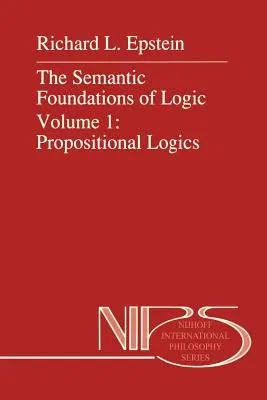R L Epstein
(Author)The Semantic Foundations of Logic Volume 1: Propositional Logics (Softcover Reprint of the Original 1st 1990)Paperback - Softcover Reprint of the Original 1st 1990, 13 November 2013

Qty
1
Turbo
Ships in 2 - 3 days
In Stock
Free Delivery
Cash on Delivery
15 Days
Free Returns
Secure Checkout
Part of Series
Nijhoff International Philosophy
Print Length
388 pages
Language
English
Publisher
Springer
Date Published
13 Nov 2013
ISBN-10
9401067228
ISBN-13
9789401067225
Description
Product Details
Author:
Book Edition:
Softcover Reprint of the Original 1st 1990
Book Format:
Paperback
Country of Origin:
NL
Date Published:
13 November 2013
Dimensions:
23.39 x
15.6 x
2.16 cm
ISBN-10:
9401067228
ISBN-13:
9789401067225
Language:
English
Location:
Dordrecht
Pages:
388
Publisher:
Weight:
576.06 gm

